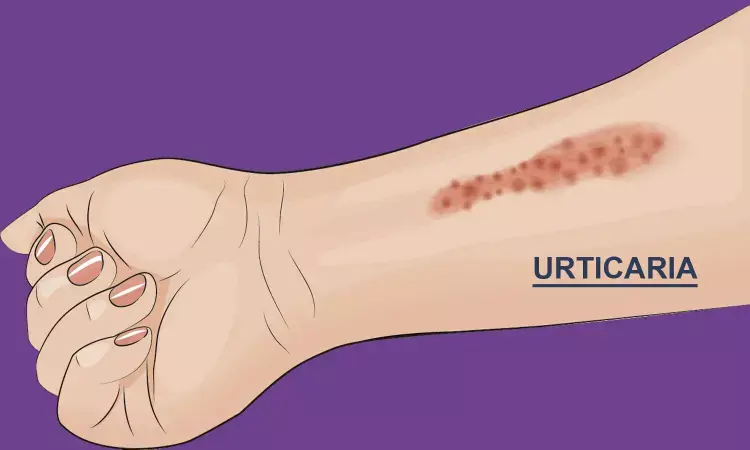- Home
- Medical news & Guidelines
- Anesthesiology
- Cardiology and CTVS
- Critical Care
- Dentistry
- Dermatology
- Diabetes and Endocrinology
- ENT
- Gastroenterology
- Medicine
- Nephrology
- Neurology
- Obstretics-Gynaecology
- Oncology
- Ophthalmology
- Orthopaedics
- Pediatrics-Neonatology
- Psychiatry
- Pulmonology
- Radiology
- Surgery
- Urology
- Laboratory Medicine
- Diet
- Nursing
- Paramedical
- Physiotherapy
- Health news
- Fact Check
- Bone Health Fact Check
- Brain Health Fact Check
- Cancer Related Fact Check
- Child Care Fact Check
- Dental and oral health fact check
- Diabetes and metabolic health fact check
- Diet and Nutrition Fact Check
- Eye and ENT Care Fact Check
- Fitness fact check
- Gut health fact check
- Heart health fact check
- Kidney health fact check
- Medical education fact check
- Men's health fact check
- Respiratory fact check
- Skin and hair care fact check
- Vaccine and Immunization fact check
- Women's health fact check
- AYUSH
- State News
- Andaman and Nicobar Islands
- Andhra Pradesh
- Arunachal Pradesh
- Assam
- Bihar
- Chandigarh
- Chattisgarh
- Dadra and Nagar Haveli
- Daman and Diu
- Delhi
- Goa
- Gujarat
- Haryana
- Himachal Pradesh
- Jammu & Kashmir
- Jharkhand
- Karnataka
- Kerala
- Ladakh
- Lakshadweep
- Madhya Pradesh
- Maharashtra
- Manipur
- Meghalaya
- Mizoram
- Nagaland
- Odisha
- Puducherry
- Punjab
- Rajasthan
- Sikkim
- Tamil Nadu
- Telangana
- Tripura
- Uttar Pradesh
- Uttrakhand
- West Bengal
- Medical Education
- Industry
Cetirizine better than diphenhydramine for acute urticaria treatment

USA: Intravenous cetirizine is a better alternative to intravenous diphenhydramine for the treatment of acute urticaria, finds a recent study in the journal Annals of Emergency Medicine. Benefits of intravenous cetirizine over diphenhydramine include less sedation, lower rates of revisit to the treatment center, shorter time spent in treatment center, and fewer adverse effects.
Acute urticaria is urticaria that occurs with or without angioedema that persists for less than 6 weeks. It is a frequent presentation in emergency departments (EDs), urgent care centers, and other clinical areas. Diphenhydramine is the only intravenous antihistamine offered for its treatment because of its short duration of action and well-known adverse effects. Benjamin S. Abella, University of Pennsylvania, Philadelphia, PA, and colleagues evaluated cetirizine injection, the first second-generation injectable antihistamine, for acute urticaria.
The researchers conducted a multicenter, randomized, noninferiority, phase 3 clinical trial. It included adults presenting to EDs and urgent care centers with acute urticaria requiring an intravenous antihistamine. They were randomized to receive either intravenous cetirizine 10 mg or intravenous diphenhydramine 50 mg.
The primary endpoint was the 2-hour pruritus score change from baseline, with time spent in the treatment center and rate of return to treatment centers as key secondary endpoints.
Key findings of the study include:
- Among 262 enrolled patients, the 2-hour pruritus score change from baseline for intravenous cetirizine was statistically noninferior to that for intravenous diphenhydramine (–1.6 versus –1.5), and in favor of cetirizine.
- Treatment differences also favored cetirizine for mean time spent in treatment center (1.7 versus 2.1 hours), return to treatment center (5.5% versus 14.1%), lower change from baseline sedation score at 2 hours (0.1 versus 0.5), and adverse event rate (3.9% versus 13.3%).
"Intravenous cetirizine is an effective alternative to intravenous diphenhydramine for treating acute urticaria, with benefits of less sedation, fewer adverse events, shorter time spent in treatment center, and lower rates of revisit to treatment center," concluded the authors.
The study, "Intravenous Cetirizine Versus Intravenous Diphenhydramine for the Treatment of Acute Urticaria: A Phase III Randomized Controlled Noninferiority Trial," is published in the journal Annals of Emergency Medicine.
DOI: https://doi.org/10.1016/j.annemergmed.2020.05.025
Dr Kamal Kant Kohli-MBBS, DTCD- a chest specialist with more than 30 years of practice and a flair for writing clinical articles, Dr Kamal Kant Kohli joined Medical Dialogues as a Chief Editor of Medical News. Besides writing articles, as an editor, he proofreads and verifies all the medical content published on Medical Dialogues including those coming from journals, studies,medical conferences,guidelines etc. Email: drkohli@medicaldialogues.in. Contact no. 011-43720751


